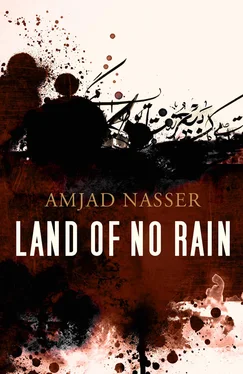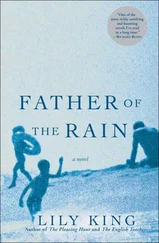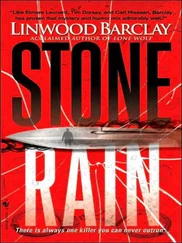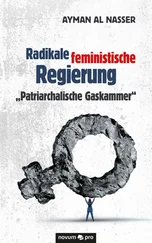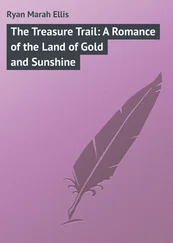Nasser Amjad - Land of No Rain
Здесь есть возможность читать онлайн «Nasser Amjad - Land of No Rain» весь текст электронной книги совершенно бесплатно (целиком полную версию без сокращений). В некоторых случаях можно слушать аудио, скачать через торрент в формате fb2 и присутствует краткое содержание. Год выпуска: 2014, Издательство: Bloomsbury Qatar Foundation Publishing, Жанр: Современная проза, на английском языке. Описание произведения, (предисловие) а так же отзывы посетителей доступны на портале библиотеки ЛибКат.
- Название:Land of No Rain
- Автор:
- Издательство:Bloomsbury Qatar Foundation Publishing
- Жанр:
- Год:2014
- ISBN:нет данных
- Рейтинг книги:4 / 5. Голосов: 1
-
Избранное:Добавить в избранное
- Отзывы:
-
Ваша оценка:
- 80
- 1
- 2
- 3
- 4
- 5
Land of No Rain: краткое содержание, описание и аннотация
Предлагаем к чтению аннотацию, описание, краткое содержание или предисловие (зависит от того, что написал сам автор книги «Land of No Rain»). Если вы не нашли необходимую информацию о книге — напишите в комментариях, мы постараемся отыскать её.
Land of No Rain — читать онлайн бесплатно полную книгу (весь текст) целиком
Ниже представлен текст книги, разбитый по страницам. Система сохранения места последней прочитанной страницы, позволяет с удобством читать онлайн бесплатно книгу «Land of No Rain», без необходимости каждый раз заново искать на чём Вы остановились. Поставьте закладку, и сможете в любой момент перейти на страницу, на которой закончили чтение.
Интервал:
Закладка:
You knew that if he spoke he wouldn’t stop. If he stopped it would be hard to persuade him to speak again. You also knew that you were the one expected to speak. You first. Because you were required to tell a story that matched his story. A story justifying what had happened. Then you might be quits in his eyes: a story that settles the score after another story. But can one story mend the ruptures, patch up the holes in a life that has almost run its course? Is there a story that is the mother of all stories? An overall story. You don’t know. But nonetheless it’s definitely you that has to speak first. Go on, tell him one of the stories from your exile, your life abroad, your wanderings (call it what you like), or make one up for him. But what should you talk about? About promises, hopes, wars and sieges, the wandering life, the cold, waning vigour, sadness and death the reaper? That’s too much. Besides, you’re scatterbrained and disorganised. There is a story that might not make him very happy but it might hold his attention. It’s about the man who split in two. Of course he knows that story. But you don’t mean you and him, but rather you and the person whose name was the same as your pseudonym, who wrote in newspapers like you and who chased you tirelessly through a labyrinthine city of twisting lanes because he wanted to find out who had assumed his identity. Tell him that story, even if you don’t know what his reaction will be, but stipulate that he must listen to you till the end. Stipulate that he cannot interrupt. That way you can keep him under control if he rebels. You can sidestep his questions when you don’t have a satisfactory answer. You can take him on a wild goose chase with your convoluted story. You’re in a good mood now. Take advantage of it.
You sat up straight on the mattress on the floor. You cleared your throat. Then you told him, ‘Listen to me as long as your bad temper will permit. A meeting like this, face to face in the open air, with all the time in the world, doesn’t always happen, and may not happen often in the future. You don’t know everyone I know but I definitely know everyone you know. You don’t know, for example, that I’m not the only person who uses this pseudonym, which you don’t like. How could you know that there’s someone else who’s a professional writer, like me, and bears the same name as me but who lives, fortunately, far away where the ocean roars and a thousand deserts loom? We have never lived in the same place. I myself only noticed this when I was asked to explain how I could be in two places or with two different women at the same time, although I am not some kind of superman. Then I was asked how I had come to write things that weren’t like me and that don’t bear the hallmark of my nervous tension, which is more famous than my writing itself. This is apart from the fact that his writings on current affairs take a position that is different from mine. I didn’t believe the talk about these alleged writings until a friend showed me some cuttings of them and I found that the content and form had nothing to do with me. They weren’t better than what I write, or worse. They were just completely different. It’s true that language is a universal feature of humanity and the same ideas are widely available, but the way we handle words and ideas differs from one person to another.
‘The first time I noticed that this person existed was when a critic, in the country that stretches from the ocean to the desert, commended my book Hamiya and the Bridge and I found a blurred photograph published with the review. The photo department in the newspaper had assumed it was a picture of me. It wasn’t me. I was convinced of that even though the picture was blurred and didn’t have any distinguishing features, unless you count the thick glasses that almost covered the man’s eyes. But when I remembered that I do sometimes wear thick-framed glasses, I was a little hesitant about taking a position on the identity of the person in the photograph. I interpreted it as just a coincidence. There was someone else whose name was my pseudonym and who practised the same profession. They say that God can create forty likenesses of a single person, so it wouldn’t be hard for Him to inspire forty men (or women) to give their children my assumed name, which you don’t like. I don’t know if you knew this, but when I gave myself this name, after I fled the country, I was thinking only that it was ordinary, a name like any other name.’
You stopped talking, then you looked at him. His face showed signs of scepticism, as though he wanted to say something. But apparently he intended to comply with your stipulation, not to interrupt until the end. So you continued:
‘Please believe me. Yes. That was the reason. After we split in two, I wanted to have an ordinary name that wouldn’t draw attention, that wouldn’t arouse suspicion of any kind and that was plausible in that city where bullets could easily fly. A name that would be lost among other names, with no special meaning, though in our language it’s hard for names not to have meanings or symbolise something. For example, my first name (which is now exclusively yours and which I remember only when I’m with you on this balcony or in the troubling dreams I have) is the name of a prophet, a man who’s also known as Jonah. But a marginal prophet. I don’t know what his message was. It’s said that in Nineveh he tried to guide his people to the right path but didn’t succeed. He abandoned them. He wandered around aimlessly. He went to sea and a whale swallowed him. I don’t think my father meant to imply any of this when he called me Younis. It would be disastrous if that’s what he intended, because there’s nothing of Younis the prophet in me, or even of Younis our relative, a good man we never saw without his crutches. Anyway I don’t like this name. It always struck me as an old man’s name. For ages it reminded me of our relative, who was already old when he was born. On crutches. This is the truth that you in particular must know. Besides, I don’t like big names. The names of heroes and gods that some writers and poets and politicians working in revolutions and secret organisations adopt for themselves. You know that in Hamiya I was branded with a red-hot iron on my stomach because of books and ideas, and I didn’t choose for myself (sorry, I mean you didn’t choose for yourself, because I still mix up the two personalities and the two periods) a name other than Younis al-Khattat. I want you to know you’re not the only one to have suffered. The anxiety and uncertainty I went through were no less painful than the disappointment, the sense of abandonment and neglect that you suffered. To carry around someone you no longer are, a name you’re not known by among people but which nonetheless remains stuck to you, is not just a procedural matter. Do you understand? It’s not just a question of a passport and bureaucracy. If that were the case, it wouldn’t be a subject worth talking about now.’
Once again you noticed the anticipation on his face. He didn’t ask you in words. But the expression on his face was asking for a clarification. The expression was telling you that the two things didn’t balance out. One of them was unlike the other. You looked uncertain too. Because one cannot fully express what one feels. There’s no language in the world that can convey feelings as they stir and shift inside us, especially if they arise from uncertainty and confusion. So you continued:
‘How can I best explain it to you? I could just tell you it’s an existential question. A question of existing or not existing. In other words, of you being yourself and someone else at the same time. And this is something you didn’t know. But trust me when I say that it doesn’t matter what we call the suffering as long as it comes from the same painful source. Of course there’s more than one reason why I’m sharing secrets with you twenty years after we split up, and the most important one is for amusement. Because the nights are long on this balcony, which is open to a star-studded sky. The nights are long here and we don’t have anything else to do. Our father died of grief at how I damaged his reputation. That’s what you told me with unenviable arrogance. Although I doubt that. Our mother died after him. And before them our grandfather and grandmother. It was they who would ensure the evening passed quickly by telling stories, and besides we’re no longer so young that we need compete to count the stars, which we were forbidden to count in the old days in case warts appeared on our hands. Do you remember that? We used to count a particular patch of sky, then discover that we were counting the same stars again, or that the patch had started to grow bigger and the number of stars was multiplying, or they were changing their positions and their shapes. So we would stop counting, happily admitting defeat. So let me tell you my story about the other man who has that name of mine you don’t like. It might amuse you. Or console you. And it might persuade you to tell me a story, maybe about the little tricks you play, about how you’re still not cured of love, and about your letters to Roula, which more than once have put me in an embarrassing and awkward position. I know you’re still writing them, with inspiration from the Song of Solomon, which I can no longer stand, because they find their way to me in the far reaches of exile.’
Читать дальшеИнтервал:
Закладка:
Похожие книги на «Land of No Rain»
Представляем Вашему вниманию похожие книги на «Land of No Rain» списком для выбора. Мы отобрали схожую по названию и смыслу литературу в надежде предоставить читателям больше вариантов отыскать новые, интересные, ещё непрочитанные произведения.
Обсуждение, отзывы о книге «Land of No Rain» и просто собственные мнения читателей. Оставьте ваши комментарии, напишите, что Вы думаете о произведении, его смысле или главных героях. Укажите что конкретно понравилось, а что нет, и почему Вы так считаете.
